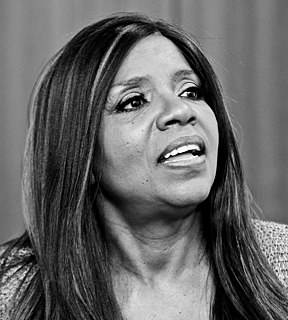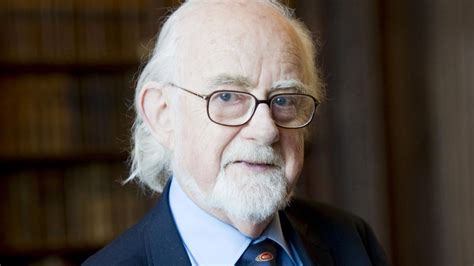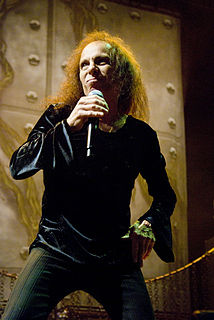A Quote by Christopher Moore
He always had a problem with the purity of others. Never his own.
Related Quotes
His face set in grim determination, Richard slogged ahead, his fingers reaching up to touch the tooth under his shirt. Loneliness, deeper than he had never known, sagged his shoulders. All his friends were lost to him. He knew now that his life was not his own. It belonged to his duty, to his task. He was the Seeker. Nothing more. Nothing less. Not his own man, but a pawn to be used by others. A tool, same as his sword, to help others, that they might have the life he had only glimpsed for a twinkling. He was no different from the dark things in the boundary. A bringer of death.
I've never had a problem with Jesus. In fact, I'm pretty sure he's just the kind of guy you'd always want to have around. But I have had a big problem with his agents, publicists, and managers. They've abused his message for power and converted moldable, excited people into bullied believers and followers.
The whole gospel of Karl Marx can be summed up in a single sentence: Hate the man who is better off than you are. Never under any circumstances admit that his success may be due to his own efforts, to the productive contribution he has made to the whole community. Always attribute his success to the exploitation, the cheating, the more or less open robbery of others. Never under any circumstances admit that your own failure may be owing to your own weakness, or that the failure of anyone else may be due to his own defects - his laziness, incompetence, improvidence, or stupidity.
The poet is never inspired, because he is the master of that which appears to others as inspiration. He does not wait for inspiration to fall out of the heavens like roasted ortolans. He knows how to hunt...He is never inspired because he is unceasingly inspired, because the powers of poetry are always at his disposition, subjected to his will, submissive to his own activity.
To judge sins is the business of one who is sinless, but who is sinless except God? Who ever thinks about the multitude of his own sins in his heart never wants to make the sins of others a topic of conversation. To judge a man who has gone astray is a sign of pride, and God resists the proud. On the other hand, one who every hour prepares himself to give answer for his own sins will not quickly lift up his head to examine the mistakes of others.
However tiresome to others, the most indefatigable orator is never tedious to himself. The sound of his own voice never loses its harmony to his own ear; and among the delusions, which self-love is ever assiduous in attempting to pass upon virtue, he fancies himself to be sounding the sweetest tones
Man—every man—is an end in himself, not a means to the ends of others; he must live for his own sake, neither sacrificing himself to others nor sacrificing others to himself; he must work for his rational self-interest, with the achievement of his own happiness as the highest moral purpose of his life.




































